
Culture
19:42, 04-Nov-2017
CCTV’s Sun Yusheng first Chinese VP of Asia-Pacific Broadcasting Union
By Guo Meiping
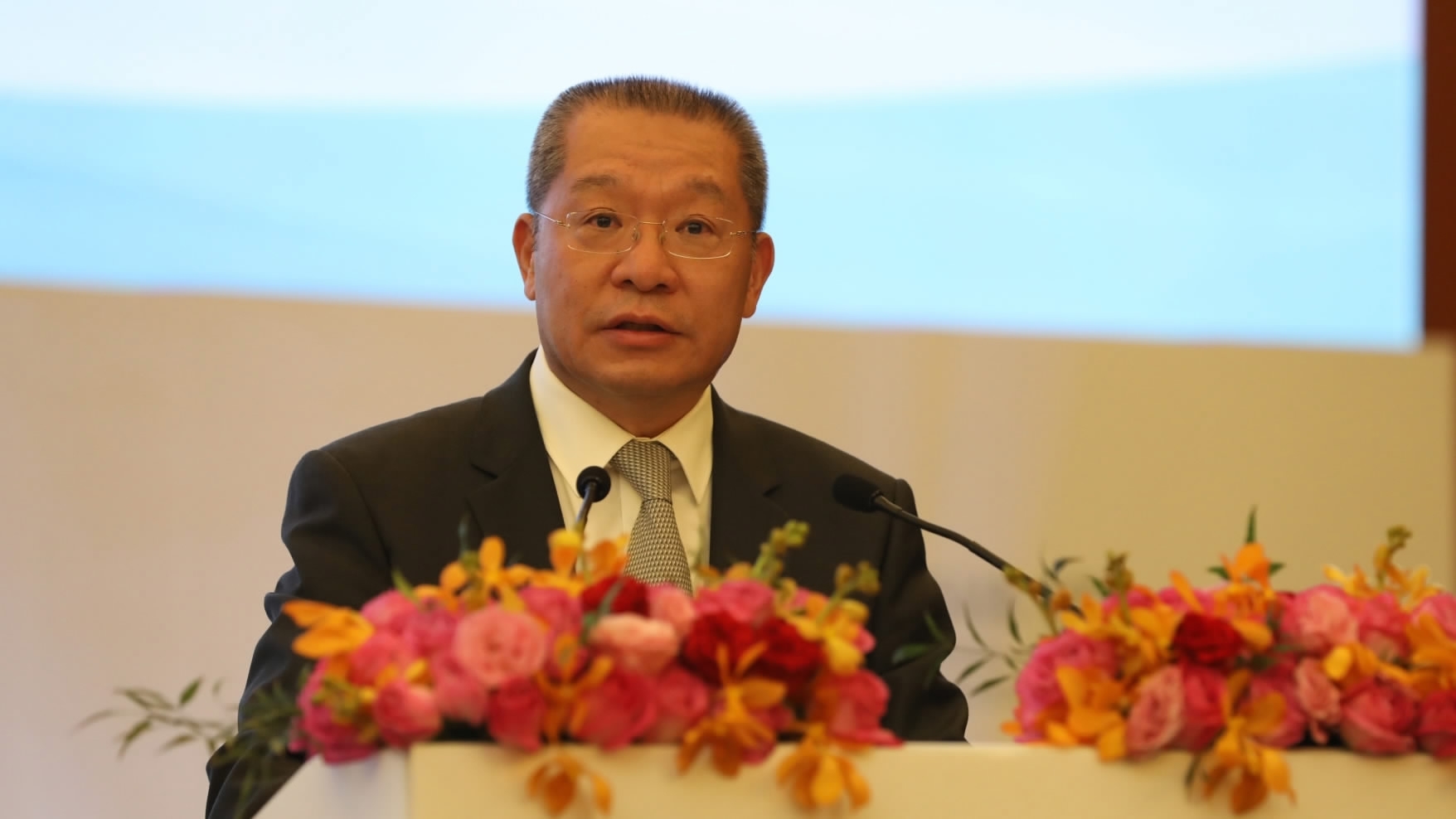
The 54th Asia-Pacific Broadcasting Union (ABU) General Assembly was held in Chengdu, southwest China's Sichuan Province, from October 30 to November 4. Considered the biggest gathering of broadcasters in the region, this year’s event focused on “The Media in Times of Uncertainty”.
About 600 senior media professionals from over 50 countries and regions gathered to share their ideas and deepen media cooperation.
The first Chinese senior official of ABU
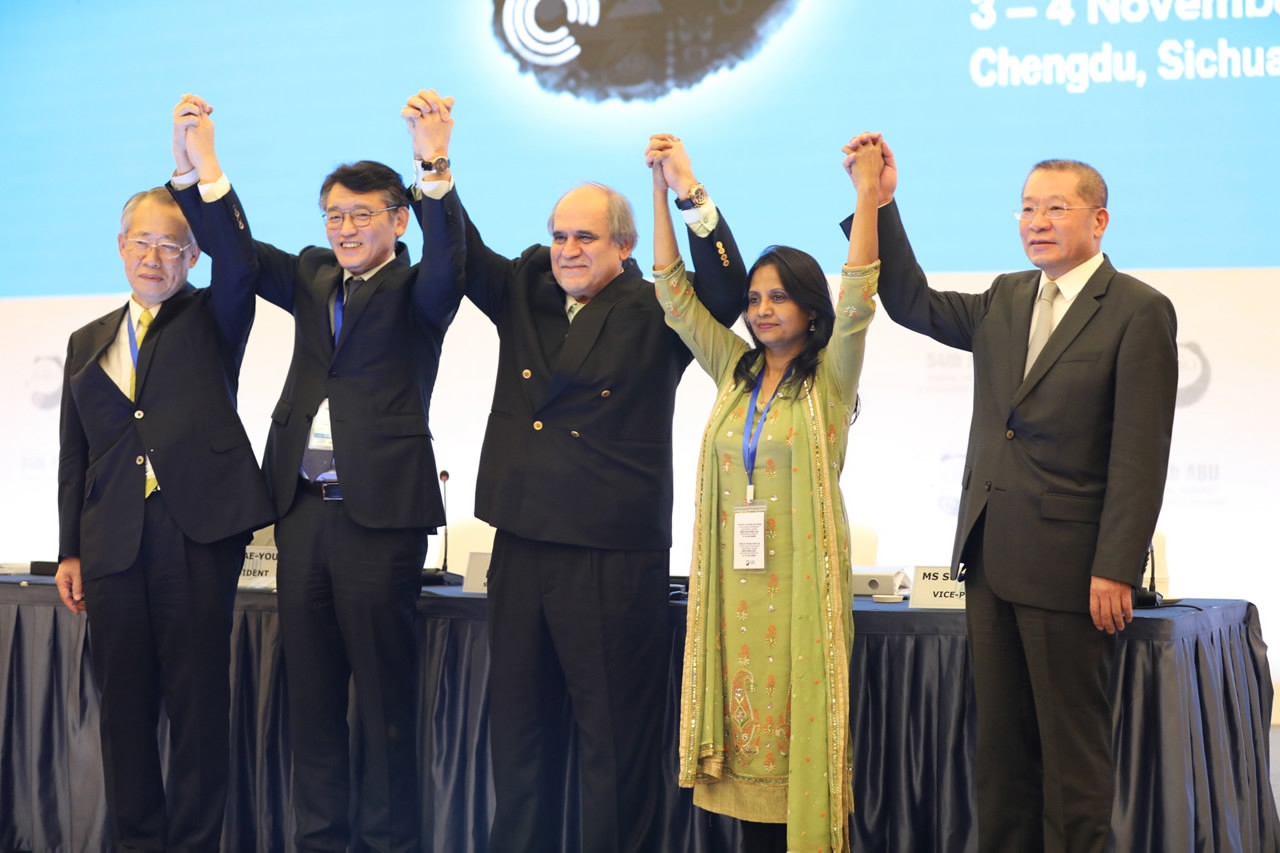
Sun Yusheng (R) at the 54th Asia-Pacific Broadcasting Union General Assembly /CGTN Photo
Sun Yusheng (R) at the 54th Asia-Pacific Broadcasting Union General Assembly /CGTN Photo
Sun Yusheng, vice president of CCTV and executive vice president of China Global Television Network (CGTN), was elected as the ABU’s vice president on Saturday.
Sun, 57, has more than 30 years’ experience in journalism and public broadcasting. He supervised major TV projects including coverage of Hong Kong's return to China in 1997 and the Beijing Olympic Games in 2008.
Sun is the first Chinese to become a senior official of ABU.
During the acceptance speech, Sun expressed his confidence in the future of the union, based on “the prospects for Asia-Pacific regional economic development”. He highlighted China's booming broadcasting industry, which boasts 2,578 radio and TV broadcasting organizations, with an annual revenue exceeding 500 billion yuan (about 75 billion US dollars).
“I believe that the development of China’s radio and TV broadcasting industry will surely bring more vitality and opportunities to the development of ABU.” Sun said.
What is the ABU?
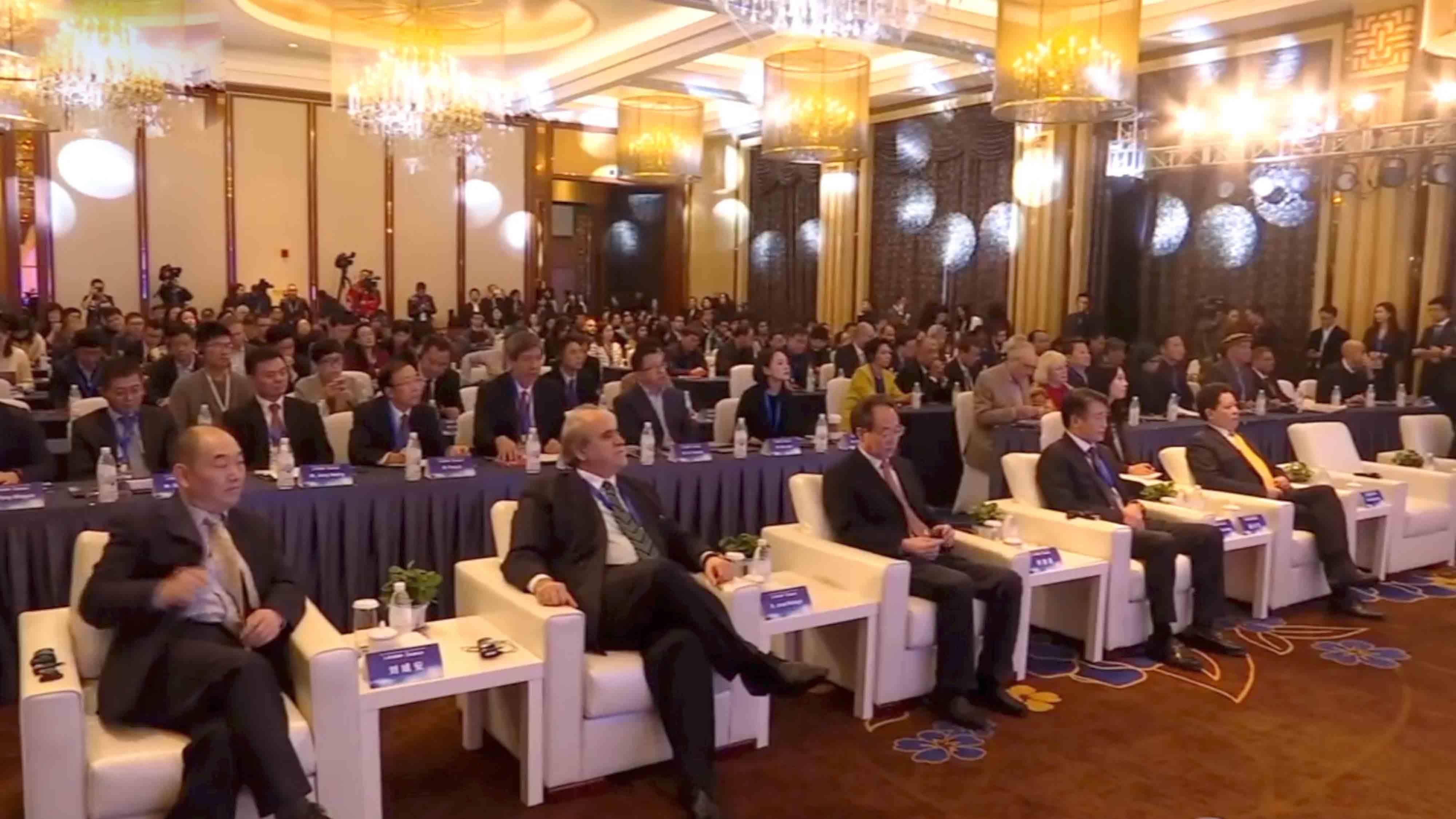
The ABU, founded in 1964, is a non-profit organization with 281 members, including major broadcasters in 69 countries and regions across the Asia-Pacific and beyond. It promotes the collective interests of television and radio broadcasters and encourages regional and international cooperation between broadcasters.
The ABU is funded primarily by annual subscriptions from members. It has an elected president and three vice-presidents, who serve three-year terms.
China as an ABU member
China became a member of the ABU in the 1970s. Over the past few decades, Chinese radio and television organizations have played important parts in fulfilling ABU obligations, and participating in and supporting its various activities.
The venue of the ABU conference – Sichuan
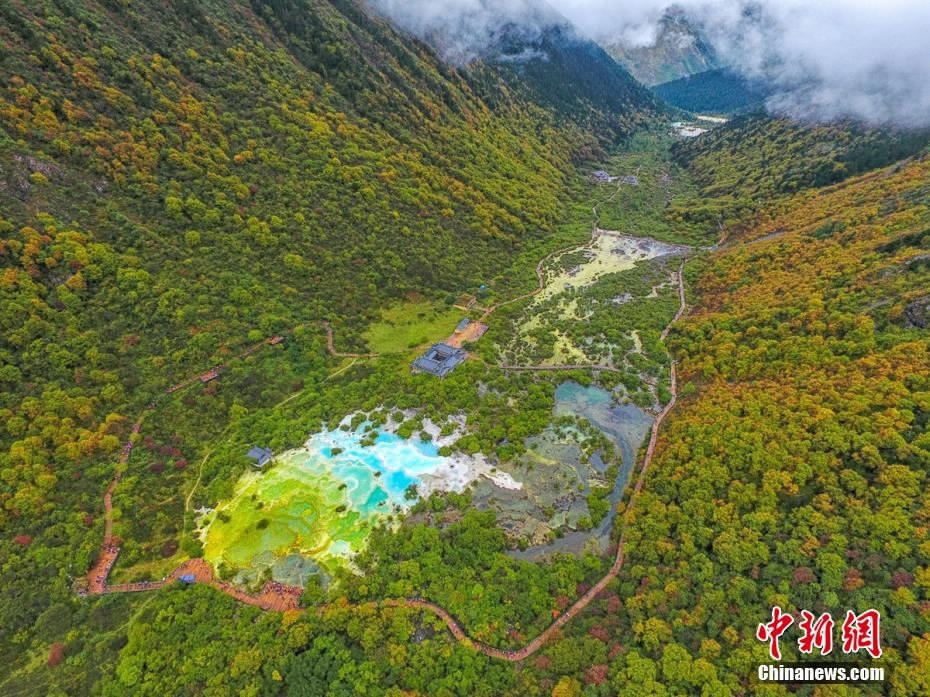
Aerial view of Sichuan /Photo via Chinanews.com
Aerial view of Sichuan /Photo via Chinanews.com
As the venue of the 54th ABU conference, Sichuan has real significance. The province has a very advantageous geographic location under the Belt and Road Initiative. It is the frontline of China’s westward development and an important window to the world. And the radio and television industry in Sichuan has seen stable growth in recent years.
Media partnerships under Belt and Road
A forum on deepening media cooperation under the Belt and Road Initiative was held on November 1 during the 54th ABU event.
Leaders of CGTN participated in the forum and discussed media responsibilities, opportunities and challenges as the world enters an age of great progress and profound transformation.
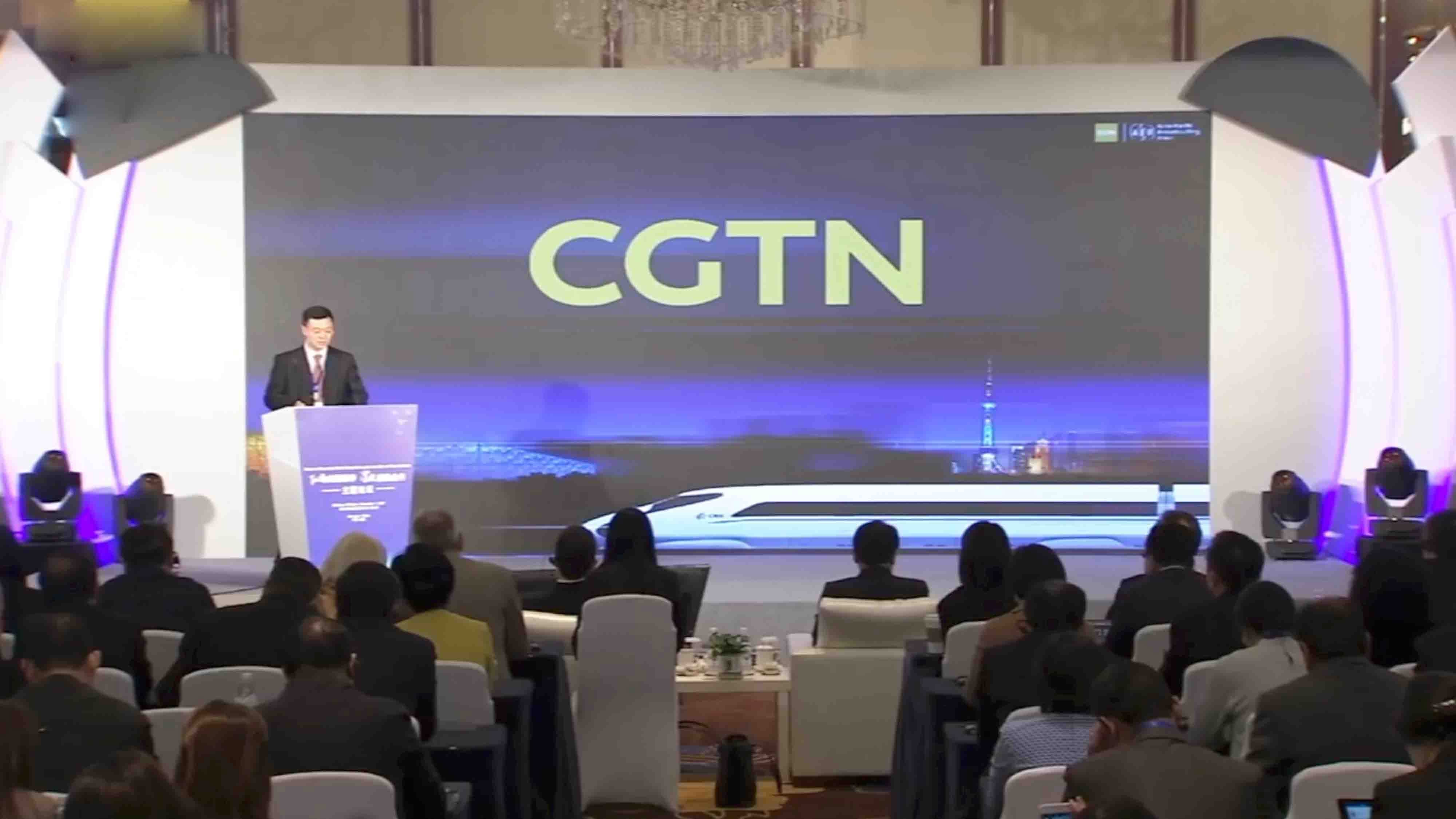
CGTN Controller Jiang Heping delivered a speech about future developments in media.
Starting with "Miss out on China, you miss out on the future", Jiang introduced CGTN, detailed its coverage, as well as its plans for future development. He stressed that CGTN is committed to reform in a time when global media is undergoing unprecedented change.
“The world has entered an age of uncertainty, marked by major political and economic changes globally,” Jiang said. “But there is one thing we can be quite certain of. That is, the future development of China.
“General Secretary Xi Jinping, at the recently-concluded 19th National Congress of the Communist Party of China, laid out a blueprint and timetable for China’s development in the new era."
"President Xi Jinping has promised that China will open its arms to the people of other countries and welcome them aboard the express train of China's development in this age of rapid progress and major change," Jiang added.
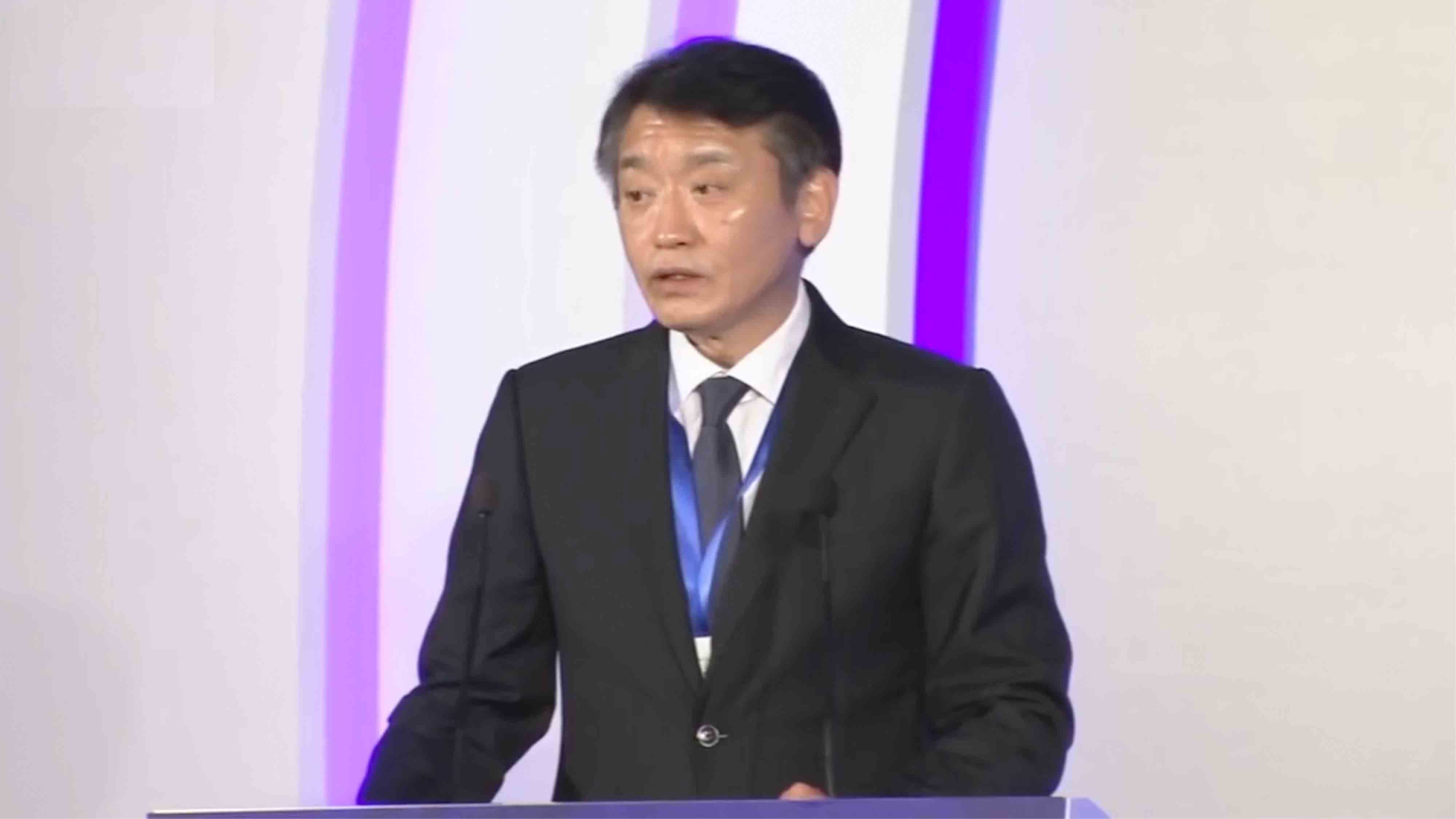
ABU President Ko Dae Young said during the forum, “The Belt and Road Initiative will become a channel for content containing diverse Asian values. They will travel to Europe and other continents.”
“I hope the initiative can boost exchange in broadcast and culture,” he added.
1520km

SITEMAP
Copyright © 2018 CGTN. Beijing ICP prepared NO.16065310-3
Copyright © 2018 CGTN. Beijing ICP prepared NO.16065310-3